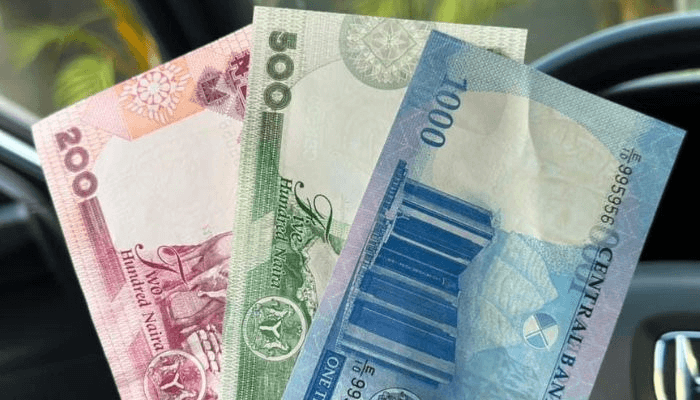Nigeria has officially floated its naira after years of sticking with a hard peg that scared away investors and drained the country’s external reserve.
This floating means buyers and sellers of foreign currency in the official FX market are now allowed to quote rates they find comfortable, as against previous practice where rates were dictated by the Central Bank of Nigeria (CBN).
The Investors & Exporters (I&E) window is now quoting a range of between N750 and N755/$, according to customers who cited emails received from their banks.
But, the Central Bank of Nigeria (CBN) is still quoting N463/$ as the I&E rate on its website but the last time it updated the rate was June 9.
What does floating the naira mean for business?
A floating exchange rate is generally defined as when a nation’s currency value is determined by the forex market according to supply and demand compared to other currencies.
Tosin Olaseinde, founder of MoneyAfrica explained that floating of the naira means that market forces will now be allowed to determine the exchange rate.
“CBN has been holding the dollar to naira rate at N460. Pegging. Now they have told banks to sell freely,” she said.
A floating exchange rate is generally defined as when a nation’s currency value is determined by the forex market according to supply and demand compared to other currencies.
Tosin Olaseinde, founder of MoneyAfrica explained that floating of the naira means that market forces will now be allowed to determine the exchange rate.
READ ALSO :Nigeria officially floats naira as I&E rate hits N755/$
“CBN has been holding the dollar to naira rate at N460. Pegging. Now they have told banks to sell freely,” she said.
Jude Dike, founder of Getequity said floating the naira – allowing banks and other institutions to buy and sell dollars at their own rate – brings even more access because everybody doesn’t have to meet CBN for dollars.
He said it cuts the FX clutter for foreign investors.
READ ALSO :List Of 47 Microfinance Banks Licences Revoked By CBN
“Basically one of the biggest issues companies have had is access to dollars. As an international investor, if you do business in Nigeria, you have to go through CBN to bring dollars into the country (say you want to bring $20m) to convert at the CBN rate. The reason for this is, if you want to take money out, you will also take it out at CBN rate,” Dike explained.
He also noted that the process takes a lot of time.
“But then CBN measures how much money they give to BDCs and if you were trying to use BDC at the black market rate, there are not enough dollars,” he said.
“It is one of the reasons we owe Emirates $800m. Their money is stuck in naira, they cannot take it out in USD.”
Floating the naira also allows market economics to come in, the finance expert said.
“If I choose to sell at 900, another person sells at 800, another at 850. people will flock to 800 first, if that person’s own finishes, then they will go to 850,” he said.
“If 900 people are not doing any business, they can choose to sell at 790, people will rush to them and it keeps going like this. As long as there are a lot of people who have more dollars to sell, the price will come down.
“So now CBN can choose to sell at 755, and as long as they keep having dollars to sell, people will rush to them. It is like what you see at filling stations. when it started it was N520 or more. Now most places sell at N495.”
Trade in Nigeria will be better for it, Kalu Aja, a financial expert said.
“What happens if the naira is devalued, imports cost more, exports earn more, the budget deficit is lower, FGN & States earn more, purchasing power falls, dollar inflow increases, no more parallel market, now only tax evaders go there, local goods sell more: caveat goods with low foreign input,” he said.
– businessday

